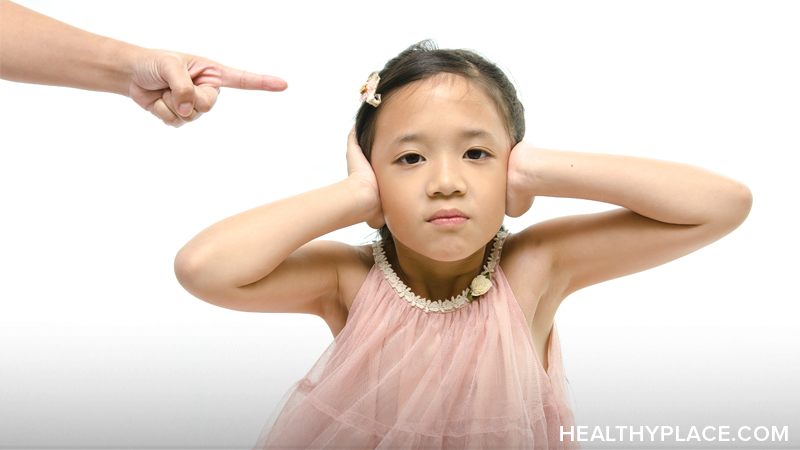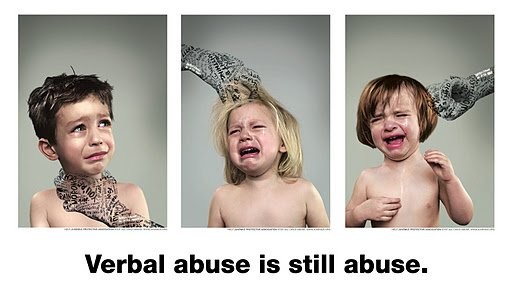Childhood Verbal Abuse: A Long-lasting Impact on Emotional and Mental Health

Childhood verbal abuse, often overlooked but with profound consequences, is gaining attention from experts. This form of abuse, characterized by yelling and threats from parents or caregivers, can lead to enduring emotional and mental health issues. In this comprehensive report, we delve into the long-term effects of childhood verbal abuse and the urgent need for its recognition as a distinct form of maltreatment.
The Ongoing Fallout: Emotional and Mental Health Consequences
Childhood verbal abuse isn’t a transient experience; its repercussions extend into adulthood, resulting in increased risks of anger, depression, substance abuse, self-harm, and obesity. Whether the abuse originates from parents, caregivers, or teachers, the impact persists, underscoring the importance of addressing this hidden problem. Shanta Dube, PhD, the lead author of a recent study, emphasizes the immediate and long-term impacts of childhood verbal abuse, urging its detection and intervention.
Equal Severity to Physical and Sexual Abuse
Contrary to common perceptions, experts stress that verbal abuse can be just as damaging as physical or sexual abuse. Hilit Kletter, PhD, a psychiatrist at Stanford Medicine Children’s Health, advocates for recognizing the seriousness of childhood verbal abuse and the necessity for change in societal attitudes.
Identifying the Culprits
Research indicates that parents are the primary perpetrators of childhood verbal abuse, accounting for a substantial 76.5 percent of cases. Other adult caregivers in the home and teachers contribute to a smaller proportion. Dr. Kletter underscores the significance of recognizing this abuse early, given its far-reaching effects on both mental and physical health.
Types of Verbal Abuse
Shouting and screaming emerge as the most commonly documented forms of childhood verbal abuse. However, experts stress that volume is not the sole determinant; intent, delivery, and immediate impact on children also play vital roles in identifying verbal abuse.
Reclassification of Verbal Abuse
Child maltreatment classifications currently categorize verbal abuse under ’emotional abuse.’ Researchers argue for a distinct classification of ‘childhood verbal abuse’ to ensure it receives the necessary attention and preventive measures. Inconsistencies in definitions across studies pose challenges in recognizing and addressing the issue effectively.
Cultural Factors at Play
Verbal abuse often goes unacknowledged due to cultural factors, where it may be considered acceptable. Experts highlight the complexities involved, emphasizing the need for a cultural shift in perceptions.
Prevention through Focus on Perpetrators
To break the cycle of intergenerational abuse, experts advocate for the term “childhood verbal abuse” to shift the focus onto the actions of adults. By addressing the issue directly, similar actions and interventions can be developed to prevent its occurrence.
A Catalyst for Change: The Role of Words Matter
The study receives funding from Words Matter, a charity committed to improving children’s mental and physical health by combating verbal abuse. This support underscores the importance of addressing this issue at a societal level.
Seeking Help for Recovery
For those still grappling with the effects of childhood verbal abuse, psychotherapy, specifically cognitive behavioral therapy (CBT), is recommended. This evidence-based approach can help individuals reframe their thoughts and beliefs to overcome the trauma.
In conclusion, the lasting impact of childhood verbal abuse on emotional and mental health is undeniable. Recognizing this form of maltreatment, distinct from emotional abuse, is essential to facilitate prevention, intervention, and healing for affected individuals. By focusing on the actions of perpetrators and supporting initiatives like Words Matter, we can work collectively to break the cycle of childhood verbal abuse and its detrimental consequences.

:max_bytes(150000):strip_icc()/how-to-recognize-verbal-abuse-bullying-4154087_final1-f98d1d73659b44769bee14183ee76872.png)



